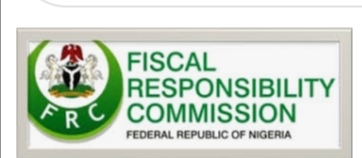Communique On The One-Day Regional Retreat On Policy Framework For Strengthening Fiscal Transparency, Prudence And Accountability At The Sub-National Levels On Th TheE 30TH Of September, 2020 At The Garden City Marriott Hotel, Port-Harcourt, Rivers State.
The Fiscal Responsibility Commission (FRC), pursuant to its functions under the Fiscal Responsibility Act, 2007, with support from Civil Society Legislative Advocacy Centre (CISLAC) and Oxfam held a one-day retreat with the aim of addressing policy and institutional framework for strengthening fiscal responsibility, transparency and accountability at the Sub-National levels within the framework of the Financing for development (F4D) project.
The Retreat aimed to identify gaps and institutional challenges, amongst other issues, that have weakened the capacity of the Fiscal Responsibility Initiative at the sub-national levels to effectively execute their mandates and harvest a robust agenda/recommendations for creating new and/or strengthening the various existing Fiscal Responsibility Commissions in order to effect beneficial changes in the fiscal management systems.
Distinguished guests included the Chairman of the FRC- Barr. Victor Muruako; the representative of the Honorable Commissioner for Finance for Rivers State- Mr Adue Stephen; Representative of the Honorable Speaker, Bayelsa State- Hon. Barr. Tare Porri; the Honorable Commissioner of Finance, Enugu State- Mrs Ada Kene-Uyanwune; the Solicitor-General/Permanent Secretary, Ministry of Justice, Imo State- Barr. Uwasomba M. C; the Chairman FRC Cross River state- Hon. Moses Oko; Chairman FRC Ebonyi- Mrs Oji-Uzor Ijeoma; Chairman FRC Ekiti- Mr Ologuntoye A.O; Chief State Counsel, Oyo State- Mr Akintola Akibu; Executive Director, CISLAC- Auwal Musa Rafsanjani and the representative of the Country Director of Oxfam, Nigeria- Mr Henry Ushie.
Observations
The following general observations were highlighted:
Local loans are collected both for capital and recurrent expenditures without particularly meeting the set requirements by the Fiscal Responsibility Act (FRA) 2007.
Some states have fashioned domestic fiscal responsibility laws that are not in line with the FRA 2007.
Some states have passed the law but are yet to establish their respective commissions.
Most of our budgets are on an IPSAS cash basis of public sector accounting as opposed to an accrual basis.
States expressed concerns over the debt management system and how it failed to acknowledge and redress fiscal shocks suffered by states in the post-pandemic period.
They also highlighted the lack of application of escape clauses during exceptional circumstances (like the pandemic) for those states with a history of compliance as recognized by the FRA.
The state representatives made the following key submissions on the status of their respective fiscal responsibility frameworks:
Enugu state
The state law has been passed and assented to in May 2020 and is in line with the 4-point agenda of the state government.
The state has: set up a committee to look at its MTEF and promotes citizen participation and transparency through a single financial transactions dashboard; a single account set up through which all expenditure is defrayed; consolidated its revenue to facilitate budgetary forecasting which is currently at over 60%; and a cash reserve account to strengthen its public account system and provide a buffer against economic crisis.
The federal debt management system is deficient as it fails to accommodate state fiscal deficits to cope with the present economic crisis.
Ebonyi state
Following lapses after its domestication, the state law was amended under the guidance of the FRC and was passed and assented to in 2020, after which a Commission was inaugurated and allowed to run independently.
Bayelsa state
The state domesticated its law in 2009 and amended it in 2020 but have failed to establish a Commission.
In 2012, an Income and Expenditure law that compels the acquaintance of citizens with information on revenue and expenditure, was enacted.
Poor implementation and lack of political will to drive process have been the state’s major issues.
Ekiti state
Ekiti state was the first SW state to pass the law and establish a commission in 2011.
The law was repealed and re-enacted in 2019 (Ekiti state FR Law 2019) and an amendment law was signed into law in July 2020.
The newly inaugurated Board has developed a 4-year plan and submitted to the Adviser for Development partners; signed up to the OGP; and has a progress report on the implementation of the States’ Fiscal Transparency, Accountability, and Sustainability (SFTAS).
There are however, staffing capacity and funding issues;
Lack of administrative and financial autonomy; and
The long absence of a board until June 2020 which deprived the state of its expected statutory services.
Imo state
There is no law but the current government has expressed a commitment to domesticate as the Attorney-general has reached out to the FRC for a draft law.
Cross River state
Following the enactment of the state law and establishment of the state’s Commission in 2011, the Chairman was appointed and a Senior Special Assistant to the Governor on fiscal responsibility was engaged in 2020 to facilitate and effectively coordinate the state’s fiscal responsibility strategy moving forward.
Oyo state
The state has no law or established commission.
There is currently a Budget and Implementation inter-ministerial committee.
Recommendations
The FRC should sensitize the National Economic Council and Nigeria Governors’ Forum on the need for the domestication of the FRA and the establishment of state commissions.
There is an urgent need to move from the International Public Sector Accounting Standards (IPSAS) cash basis of budget accounting to an accrual basis for public sector finance reporting.
Capital provisions should be made to carry out projects, prepare an unbiased report and publish same.
States should domesticate the FRA to be able to access the funding from the government-supported SFTAS program.
Seeking subventions for FRCs at the sub-national level.
The FRC should engage the State House of Assembly on the relevance of a fiscal responsibility framework and advocate its domestication and effective implementation.
No commercial banks should lend money to states without approval from the FRC, in line with the provisions of the FRA.
States need to introduce public financial management reforms post-COVID 19 like the IPSAS, TSA, Government Integrated Financial Management Information System (GIFMIS), Integrated Payroll and Personnel Information System (IPPIS), Charts of Accounts (COA), Medium Term Expenditure Framework (MTEF), Medium Term Sector Strategy (MTSS) and Operating Surplus Template.
States Peer Review visits and trainings should be conducted periodically.
States need to deploy adequate ICT Infrastructure and capacity and conduct training for Staff.
States should recruit professionals and make adequate provisions to cater for their staff welfare.
States should publish state budget online annually and publish budget implementation performance report online quarterly.
States should sign up to the Open Government Partnership initiative.
States should establish registers for the disclosure of information on beneficial owners of commercial entities to improve transparency and accountability in private sector governance.
The FRC should articulate and disseminate the key benefits of domesticating and implementing the FRA and the consequences otherwise, with states.














